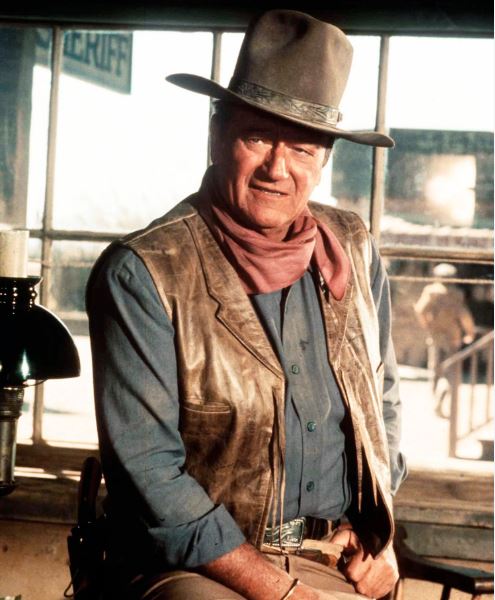In the world of westerns, few actor-director combinations are as potent and revered as John Wayne and John Ford. Wayne made his first foray into Hollywood working as Ford’s prop boy and was later cast in various bit parts in his films. Ford fought for his friend to be the star of his 1939 movie Stagecoach, the film that made ‘The Duke’ a household name, and the pair went on to collaborate on almost two dozen projects together.
As they were working in such proximity on such volatile subject matter as a feature film, it’s no surprise that Wayne and Ford didn’t always get along. Their first major argument came long before the former was a major player on the set of a film called Mother Machree. According to John Wayne: The Man Behind the Myth, a biography written by Michael Munn, the pair fell out over a highly unusual incident.
“I was given a very important job,” Wayne said via Munn’s writing. “My very important job was to release a gaggle of geese from their pens and herd them into camera shot. Now, the coach was a pretty large man with a ferocious temper, and every time he called, ‘Action!’ the geese went everywhere. Well, that just made Pappy lose his temper with me, and I just stood there flustered and embarrassed as he told me that I was the most awkward fucking propman he’d ever known.”
‘The Coach’ and ‘Pappy’ were Wayne’s nicknames for Ford, in case you hadn’t already figured that out.
Despite being in a much more junior position, Wayne wouldn’t let Ford get away with insulting him. “I got mad at him for yelling at me and cussing me,” said the actor. “I yelled and cussed right back. He said, ‘You’re a football player, aren’t you?’ I said, ‘Yes,’ and he said, ‘Do you think you could block me?’ and I said, ‘Yes.’ So he said, ‘Get down on your three-point stance,’ which is where you have one hand on the ground and the other in front of you. So I got down, and he kicked my hand away, and I went facedown in the dirt.”
Mother Machree is a drama about an Irish immigrant living in America. Ford’s film version doesn’t contain any dialogue but is set to a synchronised musical backing, a consequence of its being made during Hollywood’s conversion to talkies. He might have gotten into a physical altercation with its director, but Wayne was still given a small role in the movie, albeit as an uncredited extra.

Wayne and Ford would strike gold not just with Stagecoach but later with the likes of The Quiet Man, Rio Grande, and The Man Who Shot Liberty Valance. They remained close friends until Ford’s death in 1973. “God, that was a loss to me when Pappy died,” Wayne told Roger Ebert in 1976. “Up until the very last years of his life, Pappy could have directed another picture and a damned good one. But they said Pappy was too old. Hell, he was never too old. In Hollywood these days, they don’t stand behind a fella. They’d rather make a goddamned legend out of him and be done with him.”
Whether they were at each other’s throats or in a warm embrace, Wayne and Ford always got the best out of each other. Their separate filmographies are staggering, but they always did their best work when they were working side-by-side.
